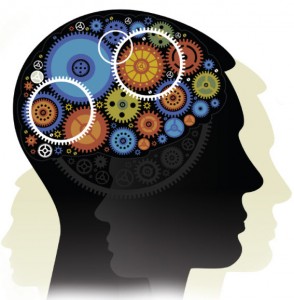The Sachs Center offers neuropsychological and psychoeducational testing for our clients. We pride ourselves on the thoroughness of our reports, the accuracy of our findings, the “readability” for parents and school administrators, and the quick turnaround. We can test on the weekends and, if needed, can provide the report within two to three weeks.
Neuropsychological or Psychoeducational evaluation?
For most of our clients, there is no difference. In settings looking at severe brain injury or trauma, neuropsychological testing would evaluate different brain functions related to hearing, sight, movement, etc. Because most of our psychological testing is for school or testing boards, we use these terms interchangeably.
What goes into Neuropsychological Testing?
Neuropsychological or Psychoeducational Testing (also known as Psychological Testing) is an assessment that measures and identifies cognitive, motor, behavioral and linguistic impairment and functioning in individuals. It is a way to evaluate the structure of brain function by looking at a person’s thinking skills and information processing.

Most of our clients undergo extensive neuropsychological testing to receive academic accommodations in school or on standardized tests (SAT, GRE, GMAT, etc.) If you are looking for extra time testing for yourself or your child, click the link below.
Learn about extra time testing for the SAT, ACT, GRE, GMAT, etc.
A typical neuropsychological or psychoeducational evaluation covers areas such as attention and concentration, memory and learning, language, visual-spatial skills, motor and sensory skills, intellectual functioning, higher level executive skills, mood, and personality.
Neuropsychological testing is accomplished via an interview and standardized tests conducted by our neuropsychologists with special training in diagnostic assessment. The tests are paper-based and are given in the same manner to all clients. The psychological testing can take a significant amount of time, ranging from 6 to 8 hours.
During the interview, the psychologist gathers information about you or your child's background, medical history, physical status, and current concerns in order to best understand test results and make useful recommendations.
When the evaluation is completed, you will be provided with a comprehensive report that may inform you of a new or corrected diagnosis.
We pride ourselves on well-written, comprehensive reports that are easy to understand. Most importantly, these reports result in the necessary accommodations in school or on standardized tests.
What is Neuropsychological Testing? Watch the video to find out.
Neuropsychological Testing for Children & Teens

It's difficult to hear that your child isn't coping with life as well as their peers. Most parents cross their fingers and hope their children will catch up on their own. The bad news is, if your child's teacher or doctor has recommended a neuropsychological evaluation for your child, it doesn't pay to put it off.
The sooner you uncover these underlying issues, the sooner you can do something to help your child achieve their full potential. Research shows that early intervention can lead to significant gains in IQ and ability for children with autism.
Neuropsychological Evaluations Overview
The neuropsychological evaluation is the most comprehensive type of assessment available. It gives a thorough overview of how your child's mind works. The clinician will look at your child's history and will give the child certain tests to complete, observing behavior throughout. These tests focus on several cognitive domains, such as:
- Cognitive functioning
- Academic functioning
- Executive functioning
- Emotional functioning
- Memory
- Visual-spatial skills
Each skill area is examined individually to gain a holistic picture of how the child functions. In this way, the psychologist can identify areas where your child differs from the norm for their age and figure out why this is the case.
A neuropsychological evaluation is thus the first and most important step for all children who aren't at the same level as their peers. It forms a strong platform to guide treatment and measure progress. Without clinical testing, your child isn't eligible for the specialized education they need.
Benefits of Neuropsychological Testing
- Testing can explain why your child is having school problems. For example, a child may have difficulty reading because of an attention problem, a language disorder, an auditory processing problem, or a reading disability. Testing also guides the psychologist’s design of interventions to draw upon your child’s strengths. The results identify what skills to work on, as well as which strategies to use to help your child.
- Psychological testing can help detect the effects of developmental, neurological, and medical problems such as epilepsy, autism, attention deficit hyperactivity disorder (ADHD), dyslexia, or a genetic disorder. Testing may provide a baseline against which to measure the outcome of treatment or the child’s development over time.
- Different childhood disorders result in specific patterns of strengths and weaknesses. These profiles of abilities can help identify a child’s disorder and the brain areas that are involved. For example, testing can help differentiate between an attention deficit and depression or determine whether a language delay is due to a problem in producing speech, understanding or expressing language, social shyness, autism, or cognitive delay. Your neuropsychologist may work with your physician to combine results from medical tests, such as brain imaging or blood tests, to diagnose your child’s problem.
- Most importantly, neuropsychological testing provides a better understanding of the child’s behavior and learning in school, at home, and in the community. The evaluation can guide teachers, therapists, and you to better help your child achieve their potential.
What's Involved in a Child Neuropsychological Evaluation?
There are three stages to every neuropsychological evaluation: the parent interview, the testing phase, and the diagnosis.
What you tell your child about this evaluation depends on how much they can understand. Be simple and brief and relate your explanation to a problem that your child knows about, such as “trouble with spelling,” “problems following directions,” or “feeling upset.” Reassure a worried child that testing involves no “shots.” Tell your child that you are trying to understand these problems to make things better. You may also tell the child that “nobody gets every question right,” and that the important thing is to “try your best.” Your child will probably find the neuropsychological evaluation interesting, and the detailed information that is gathered will contribute to your child’s care.
Parents are usually not in the room during psychological testing, although they may be present with very young children. The time required depends on the child’s age and problem. Make sure your child has a good night’s sleep before the testing. Please make sure to bring any device your child wears (glasses, hearing aid, etc.). If your child has special language needs, please alert the neuropsychologist to these. Be sure to check with the neuropsychologist prior to testing about any stimulant medication (i.e. Ritalin) or other medication your child takes in order to coordinate dosage time. If your child has had previous school testing, an individual educational plan, or has related medical records, please bring or send this information and relevant records to the neuropsychologist for review.
The entire process lasts up to 8 hours, but this can take place over a few days if preferred. Here's what to expect at every stage:
The Parent Interview
For starters, the child's parents and teachers will fill out a basic questionnaire. These forms focus on aspects involving the child's medical and school records. The psychologist will review this information before meeting with the parents.
During the face-to-face encounter with the parents, the psychologist delves a little deeper. They will ask for more information on the educational and psychological history of the parents.
Please disclose any psychiatric or neurological disorders within your family. You'll also need to discuss matters such as any problems during pregnancy, birth, and the early development of your child. The main focus of this interview should be on why your child needs psychological testing.
Give as much detail about your child's problems as possible. Be sure to mention any previous or current interventions. Be specific about your concerns. For example, describe how your child has difficulty interpreting facial expressions rather than just saying that they "struggle to communicate''.
The Tests
Neuropsychological testing is a complex field, and it's particularly difficult with children. Children don't always understand the importance of the tests; they may get bored and thus underperform.
The most common assessment tests are the Wechsler Intelligence Scales for Children. These are available in different age ranges. This test compares your child's linguistic and practical intelligence against children of a similar age.
There are four elements to the WISC, namely:
- Working Memory Index (WMI)
- Verbal Comprehension Index (VCI)
- Processing Speed Index (PSI)
- Perceptual Reasoning Index (PRI)
Each of these consists of ten core tests and five supplemental tests. Together, the results from these tests help to indicate the cognitive profile of the child (this means they illustrate where your child's strengths and weaknesses lie).
While the WISC is mainly used to determine IQ, the resulting cognitive profile gives important clues about other issues. If the child's profile meets the criteria for Autism Spectrum diagnosis, further tests can ensue.
By comparing your child’s test scores to scores of children in the same age group, the neuropsychologist can create a profile of your child’s strengths and weaknesses. The results help those involved in your child’s care in a number of ways.
Reaching a Diagnosis
During the final phase, the psychologist pores over all the information they have to determine the outcome.
It's possible for two children to get the same results from psychological testing even though they have different learning difficulties. For example, a child who can't build a tower out of blocks has a different diagnosis to a child who throws the blocks all over the floor. In both cases, the test result for this activity would be zero.
Therefore, it's important to consider all of the following aspects in relation to one another:
- The psychiatric and neurological history of family members
- Any emotional factors affecting the child
- Input from parents and teachers regarding education
- Any relevant interventions
- The test results
The last step in the evaluation is the written report. Here, the psychologist will provide a full description of their findings as well as suggestions for treatment, therapy, or further testing.
Testimonial
While there are many competent clinicians in New York City, not all clinicians can accurately diagnose and make clear and specific recommendations for a student’s educational programming. Dr. Sachs is one of those highly reputable clinicians who is the “full package” when it comes to helping students and their families. He is able to identify the problem or problems that are interfering with a student’s ability to learn and be successful and make recommendations that are clear and specific to the individual student. Clear and specific recommendations are integral to a school district being able to understand what exactly a student needs in his or her educational programming to be successful. More importantly, families also learn what is necessary, and can advocate for the supportive services that their son or daughter needs. I highly recommend Dr. Sachs to families who are looking for answers to their child’s educational challenges.
--- Tracey Spencer Walsh, Partner (Mayerson & Associates)
A Final Word
It may be scary or stressful to get neuropsychological testing for your child, but the knowledge you will gain about your child or teen is priceless and will set them on the right path going forward. Give us a call to discuss the best options for your family.